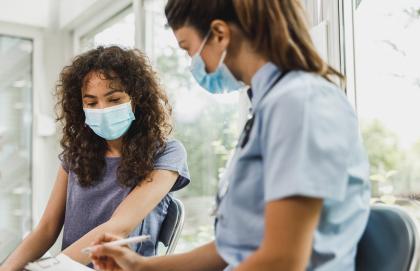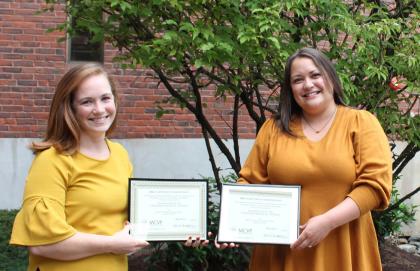We will believe you
When you
need help
Come to Cheshire's Emergency Department at 580 Court Street at any time of the day or night.
Our Medical Forensic Care team is here to help:
- What to do if you've experienced a sexual assault
- Medical forensic care frequently asked questions
- Ask an Advocate: Sexual Assault Exam video
- We welcome your feedback
What to do if you've experienced a sexual assault
If you've experienced a violent or sexual assault, you may be confused and overwhelmed about what you should do next. It's important for you to have an exam with someone from our Medical Forensic Care team.
Our Medical Forensic Care team has been specially trained to offer comprehensive, trauma-informed care to survivors of sexual assault or violence, including conducting the forensic collection of evidence.
No matter what age, sex, or gender identity, our Emergency Department is open to care for you after an assault, 24 hours a day, every day of the year.
Medical forensic exams are available to adults and adolescents who have gone through puberty or have their period already. Children who have experienced abuse or assault are referred to the Children and Adolescent Protection Program at Dartmouth Hitchcock Medical Center for further specialized care.
Healthcare after an assault is essential to your health and safety. We take your safety and privacy very seriously. Please know that you are in control of the medical forensic exam. You choose which parts of the exam are done or skipped, and you can stop or take a break at any time.
We offer medication to prevent pregnancy and sexually transmitted infections (STI). We also make sure you have the proper follow-up care and resources.
Evidence collection
There is a limited time frame for evidence collection, so we encourage people to visit the Emergency Department for a medical forensic exam as soon as possible. Evidence cannot be collected after five days.
Even if you do not want evidence collected or are outside the five-day window for evidence collection, we still recommend you seek care after experiencing a sexual assault or violence. Please call Gynecology or your Primary Care provider for guidance if you are not sure what to do. There may even be a member of the Medical Forensic Care team available to talk via phone.
We've put together these frequently asked questions (FAQs) to help you understand the medical forensic exam process.
Medical forensic care frequently asked questions
What happens when I go to the Emergency Department for an exam?
- When you arrive at the Emergency Department, you will register at the front desk. If you're feeling uncomfortable, simply say you need a forensic exam or that you need to talk to our Medical Forensic Care team.
- You may need to wait until you are seen by the triage nurse. The triage nurse will ask you basic questions, but you don't have to tell them any details that you don't want to. This nurse will check for life-threatening injuries and determine if you need medical attention before the Medical Forensic Care Provider arrives.
- From there, we'll take you to a private exam room. If a Medical Forensic Care Provider isn't working when you arrive for care, one of us is always on call to come in. We are available any time, day or night.
- We recommend that, if possible, you wait to eat, drink, or change your clothes until being seen by a Medical Forensic Care Provider as you might have evidence on your clothes or your body.
- We will call the Monadnock Center for Violence Prevention (MCVP), and you will speak with an advocate over the phone or in-person to ensure that you are supported, know who to call with questions, and will help you develop a safety plan.
- We will discuss options for a forensic exam, including evidence collection.
- After the medical forensic exam is complete, we will talk about discharge planning, including needed follow-up care and safety planning.
What happens during a forensic exam?
- We talk about what happened during the assault and ask questions to help clarify the details.
- We then perform a head-to-toe physical exam and document any injuries that we might find.
- We will review options for the exam, which include a reported kit, an anonymous kit, or a medical forensic evaluation without evidence collection.
- If you decide to complete a kit and have evidence collected, we will fill out some paperwork and get more details about the event. We will collect your DNA with a mouth swab so the crime lab can identify your DNA versus DNA from someone else.
- Regardless of kit collection, having an exam is very important for your health, well-being, and safety.
- We offer medication to prevent pregnancy, sexually transmitted infections (STI), and HIV. We also make sure you have the proper follow-up care and resources.
What about my privacy?
You may be concerned about your privacy. We are, too. We will document your medical forensic exam on paper charting to keep this information separate from your digital medical record. We also will offer to take photographs to document your exam further. These photos are burned to a CD and are not part of your medical record but may be used in a court case if you decide to report the assault.
What if I don't want to file a report to law enforcement? Should I still get a medical forensic exam?
YES.
It is your decision and right to decide whether or not you report the assault to law enforcement. The decision is yours, and we want you to know that we will support you through this process. Whether or not you choose to report or even have evidence collected, there are many reasons to see the Medical Forensic Care team in the Emergency Department for a medical forensic exam.
- With an anonymous kit, we collect potential evidence the same way as if you were choosing to file a report. However, the kit is transported to the crime lab and isn't processed unless you decide to proceed with the case.
- If you later decide to file a report, contact the police department in the town or city where the assault occurred in, and tell them what your kit number is and that you would like to report your assault.
- With a medical forensic exam without evidence collection, we provide the same care that we would to those who want evidence collected. Our exams are patient-centered. We want to make sure that you are safe and informed about medications to prevent pregnancy, STIs, and HIV and that the events of your assault are carefully documented.
What is the cost of the exam? Is insurance billed?
You will never receive a bill for the exam.
- If you have insurance, we offer to have your insurance billed to cover some of the bill, then the remaining cost for care would be covered by the state's Victim's Compensation Program.
- If there are safety concerns or other situations where someone doesn't want their insurance billed, the state's Victim's Compensation Program will cover the bill.
- Victim's Compensation Program coverage also includes any medications, follow-up care, and other services that we talk about before you get discharged from the Emergency Department.
- We also talk about follow-up care, such as seeing one of the Medical Forensic Care providers in Women's Health in a week or two to make sure all of your questions are answered and that you are doing okay. The Victim's Compensation Program also covers the cost of this follow-up exam.
Ask an Advocate: Sexual Assault Exam video
We welcome your feedback
Do you have an idea or suggestion to improve the care of violence survivors? Do you have feedback to give to our Medical Forensic Care team? Please send any comments using this form. We care about you and take your experience with our team seriously.
Our patient relations representatives can work with you to address specific concerns. They are available Monday through Friday from 9 am to 5 pm. If you prefer to speak with them, please call 603-354-6577.
Please do not ask for medical advice via this form.

